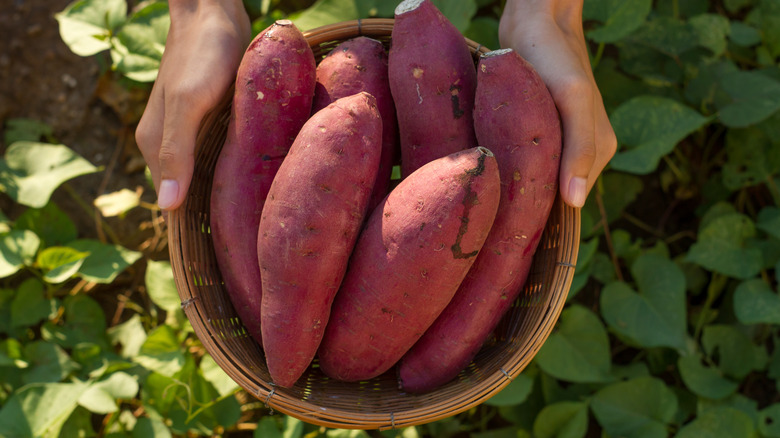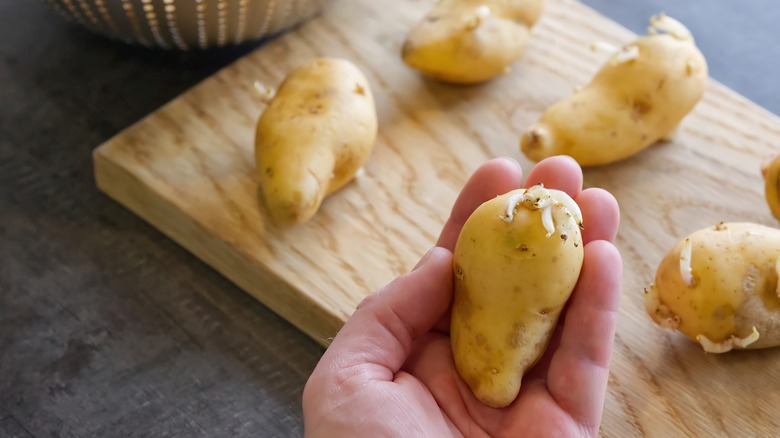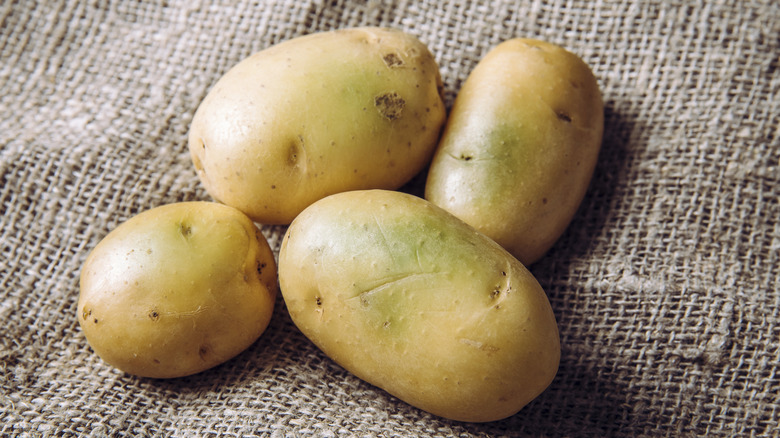Why You Should Start Storing Potatoes In A Cardboard Box
Though you can store potatoes in countless ways, not every method is ideal. It's important not only to keep the potatoes themselves dry, but also to maintain the right environment. Storing potatoes in a humid or moist space can lead to sprouting, whereas too cold an environment can convert their starches into sugars, making them too sweet.
Instead, the best way to store all types of potatoes is in a cardboard box — preferably in a cool, dark space. Since potatoes release moisture, a cardboard box provides ventilation, allowing the moisture to evaporate, rather than collect and spoil the potatoes. A box also helps protect them from light that might otherwise turn them green and bitter.
Of course, not everyone has cardboard boxes readily available, so you can try using a milk crate or brown paper bag in a pinch. Both alternatives offer decent airflow, but some potato varieties, particularly waxier ones like Yukons, may still sprout.
How to prepare potatoes for optimal storage
Sure, you could simply toss your potatoes in a cardboard box and call it a day. However, with a few additional steps, your potatoes could potentially last up to six months.
First, whether you grow your potatoes yourself or buy them from a store, ensure each one is free of dirt and dry before storage. Separate any potatoes that have mold, soft spots, or sprouts (also known as eyes), as they won't store well. Use potatoes with minor damage, such as soft spots, as soon as possible, removing the damaged areas before cooking. Regularly check on your stored potatoes, separating any that start to spoil.
It's also important to store your potatoes away from other fruits and vegetables. Onions and apples, for example, release ethylene, which can accelerate spoilage in other produce. This gas might even cause your potatoes to sprout more quickly.
The importance of proper potato storage
Although it might not seem crucial to store potatoes in optimal conditions, improper storage can lead to premature spoilage. For example, potatoes exposed to excessive light, or stored at too low a temperature, can turn green and begin to sprout. In these conditions, the levels of two chlorophyll-related chemicals, solanine and chaconine — which all potatoes naturally contain — start to increase. According to Healthline, these chemicals can cause abdominal pain, vomiting, and diarrhea when ingested in excess. In more extreme cases, where larger amounts are consumed, symptoms may include fever, confusion, and in severe instances, even death.
While some experts suggest that slightly soft potatoes are still edible, a good rule of thumb is to opt for firm potatoes if you're unsure. A soft potato is close to rotting, and that's a risk you don't want to take, no matter how much you're craving a perfect baked potato.



